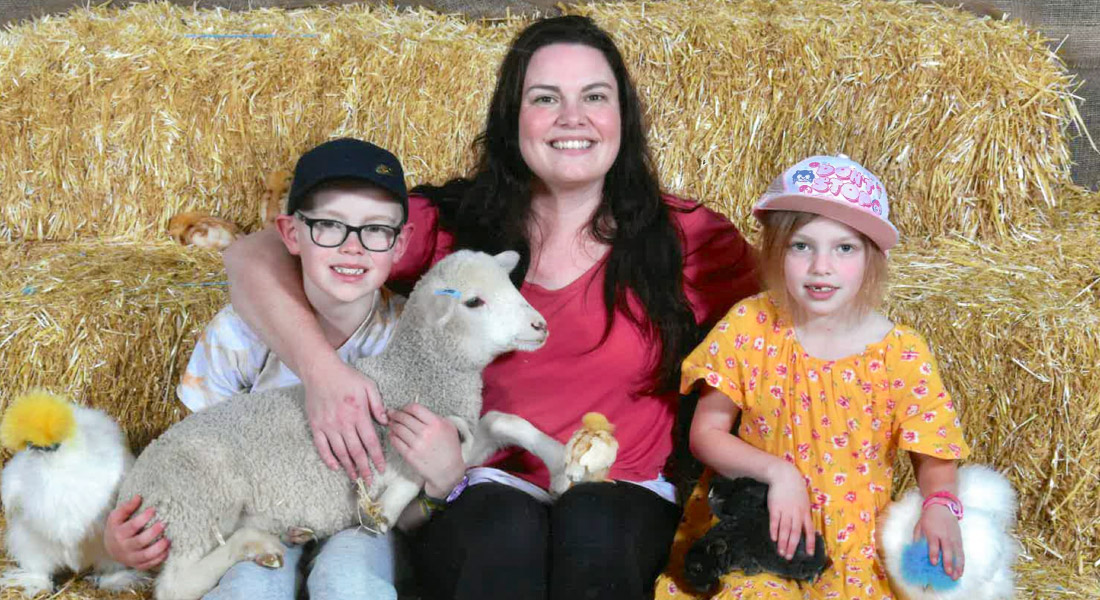Two years ago, 31-year-old Mel was getting herself ready for a date when suddenly a coughing fit hit. Disappearing to her room to grab a glass of water, Mel collapsed – having what was the first of several cardiac arrests.
Fortunately, Mel wasn’t alone as one of her good friends had popped by to wish her luck on her date, and hearing a loud thud called an ambulance, and then started CPR. After what seemed like an agonising 10 mins, the ambulance crew arrived and took over, rushing Mel to hospital. Across this next short period, Mel’s heart would stop again, needing to be restarted by a defibrillator 7 times.

In the hospital Mel was placed into an induced coma for a week, and when she woke, she wasn’t sure where she was. “I thought I was running late for work – but then realised I couldn’t talk properly and that I was in hospital.
“I wasn’t sure what had happened at first, and still struggle to remember what happened in the two weeks leading up to that day” says Mel. August 26, however, will be forever etched into Mel’s memory as a lifechanging day, as she now lives with an acquired (hypoxic) brain injury – which was caused when her brain was starved of oxygen as a result of the multiple cardiac arrests that she had.
“During my time in hospital I had a pacemaker and defibrillator (ICD) inserted into my heart to help regulate my heartbeat, and then I essentially had to work at relearning how to do so many things, like walking and communicating.”
From hospital Mel was transferred to the brain injury unit at Hampstead and stayed there for rehabilitation for 6 and a half weeks before getting back to her own home.
“Initially it was indicated that I would have to be in the Hampstead Brain Injury Unit for up to two years, but I worked so hard and was so determined to get home to my kids that I pushed to get out and home again as quickly as I could.”
The 6 weeks were tough for Mel, particularly because of the feelings of loneliness and the lack of personal space and privacy during her stay there. However, one of the biggest challenges, which turned into a driving force to get home, was missing her kids – whom she had been primary carer for prior to this event.
“My moods after the brain injury were all over the place, and I was particularly frustrated at myself for not being able to do things I used to be able to do. But my kids, they kept me going.”
The acquired brain injury has had a significant impact on Mel’s life, and she has had to make many adjustments in her every day activities. “My brain injury, which was primarily to my frontal lobe, has caused me to struggle with concentration, memory and executive functioning. I also experience a lot of fatigue and exhaustion and can experience a sensory overload very easily.
“I’ve changed from being a spontaneous type of person to someone who now needs to plan and pre-plan for things to help me avoid or limit burnout. I also need to be careful to schedule rest days on either side of busy days to recover. It’s been a big adjustment for me.”
However, through all the challenges Mel says she wouldn’t change anything, and that she believes things happen in life for a reason “to get you to where you are now”.
Though Mel’s date on that fateful night never knew why she didn’t show, she has since found love – her partner even sporting a matching pacemaker to hers. She is also again full-time carer for her beautiful children, now aged 7 and nearly 10.
Whilst this was a hard experience for her kids to see their mum go through, Mel says it has helped to shape their understanding of people with different abilities, and taught them to be kind, see ability and to treat everyone with respect. Mel is looking forward to watching her kids grow and succeed in life, and also hopes that she has shown them that even when you get knocked down, you can get back up again. She is a perfect example of just that.
Well into her recovery, Mel is now on a mission to “tell my story, so others don’t feel alone, and to share with them hope. You may be told one outcome from doctors, but I want to share with you my story, what happened to me, and for you to know there is always hope. Keep moving, one foot forwards at a time, and keep on keeping on. Find the good points and make your life something you are proud of.”
Mel is also driven by a bigger mission for all people to think about learning CPR.
“I want to encourage everyone to learn CPR, as you just never know when it might be needed to save someone’s life, just like my friend who saved mine.”